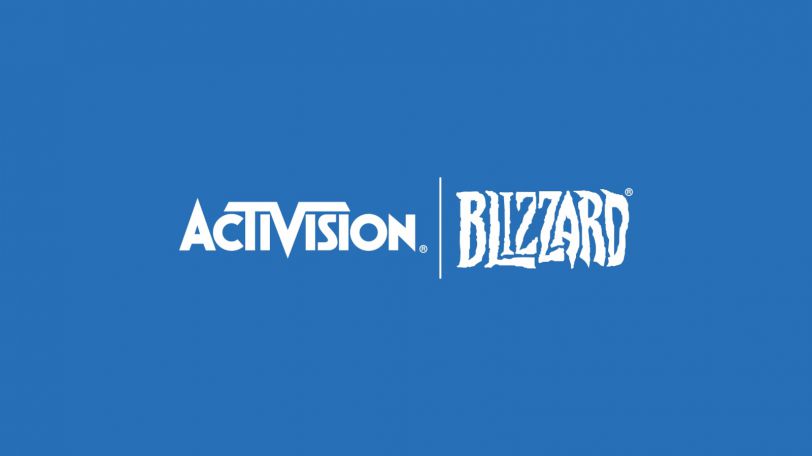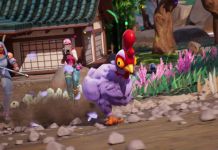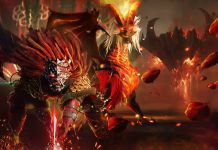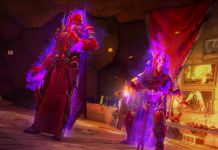Why Activision Blizzard And NetEase Partnership Really Ended: "Threats" And More
Others say it was a misunderstanding revolving around Chinese regulations.

As any video game fan knows by now, doing business in China isn’t exactly the easiest thing in the world, and as the country institutes more and more regulations around the type of content that can be in games, who can play them, and when they can be played, it becomes progressively more difficult.
To even get their game in the country, Western developers have to work with a Chinese company that will make sure they’re meeting all the requirements – even if that means changing core things about their game. One company many work with is TenCent, but some, like Activision Blizzard, have had a long-running partnership with another well-known company, NetEase, instead.
Back in November, reports started rolling out about a rift between these two companies that developed after contract negotiations broke down. According to initial reports, Blizzard simply claimed that they were unable to come together on “a deal to renew the agreements that are consistent with Blizzard’s operating principle”. Blizzard’s press release at the time made it sound like the whole thing was over then. NetEase also issued a statement that made it appear that the whole thing was news to them, stating that they were sorry about Activision Blizzard’s announcement, but that they “would have to accept” the decision. From there, things spiraled out to NetEase employees who worked on Blizzard’s games being laid off, and NetEase eventually destroying a World of Warcraft-related statue at their headquarters.
Now, it seems there’s more to the story. (There almost always is.) A report published by The New York Times indicates there was a lot more going on in the background, that the companies hadn’t exactly been pleased with each other for a bit, and that China’s increasing regulation of the video games industry also played a factor.
According to the report, NetEase had previously upset Kotick not with talk of regulations, but with its choice of investments. The first such investment was a $100 million investment given to Bungie in 2018. Kotick was upset with this because the Destiny 2 developer was “behind schedule” on the game’s content and he felt the additional influx of cash from another area would distract them from doing the work on a game that – at the time – was part of Activision Blizzard’s library. The second investment was in a company founded by a person who had previously been a senior Activision employee. By 2019, a deal was drawn up between Activision and NetEase that restricted the latter from both hiring former Activision employees or investing in any game studios they made.
With these kinds of tensions hanging over their heads, it’s not surprising that the companies would go into last year’s negotiations a bit testy. But, as mentioned, their previous disagreements weren’t the only issues in the room. At the same time all of this was going on, China had been tightening its regulations even more, reportedly resulting in NetEase executives asking Activision to file certain disclosures to Chinese regulators. Activision didn’t exactly want to do so.
Nor did they want to end their current joint venture agreement in favor of directly licensing their games to Net Ease – something else the Chinese company asked for. According to NetEase, this would make it easier for them to comply with China’s regulations without having to rely on Activision Blizzard for help.
In addition, the proposal for Microsoft to buy Activision Blizzard had been rolled out. When NetEase and Activision Blizzard came together to renew their contract, there was a lot in the room. And, this is where the “threat” comes in.
According to the people that spoke to The New York Times, Bobby Kotick did eventually agree to “consider the licensing proposal”. He also expressed concerns that this might actually be a bad thing as far as Chinese regulators were concerned.
During this same conversation, which partially relied on translators, the topic of the Chinese government reviewing Microsoft’s attempted acquisition came up. According to some of the people in the room, NetEase’s CEO William Ding indicated that his company could influence the outcome of those reviews based on how the incensing negotiations went. Activision executives felt Ding was threatening Kotick, while NetEase executives state they were not intending to make a threat. Rather, they say that Ding was trying to point out that by not switching to a licensing deal, Activision was going to leave Microsoft (or themselves if the deal doesn’t go through) having to deal with the same issues.
Obviously, both parties left the table without having made a deal, but, according to The New York Times article, Activision did come back with a counteroffer. The company would agree to switch to a licensing deal if NetEase paid them around $500 million upfront. The idea was to protect Activision financially should their games get stuck in the approval process, or be copied without their permission. NetEase declined.
Note: Activision Blizzard has had charges filed against them by the state of California for serious harassment allegations. CEO Bobby Kotick is alleged to have known about such actions within his company and in many employees' eyes failed to take adequate action. These allegations have all been denied by Activision Blizzard and the company points to additional diversity and inclusion training as past examples of taking the accusations seriously at the time they were made.
Related Articles
About the Author

QuintLyn is a long-time lover of all things video game related will happily talk about them to anyone that will listen. She began writing about games for various gaming sites a little over ten years ago and has taken on various roles in the games community.
More Stories by QuintLyn BowersRead Next

There's plenty of new rewards and the Island is now covered in cherry blossoms and spring chickens.
You May Enjoy

One unfortunate change includes dropping German and French localization.

The update arrives in two weeks on April 23rd.

DECA calls the new trial a return to "epic, mechanics-driven boss battles."

The First Contact Day Celebration begins tomorrow.
Discussion (0)